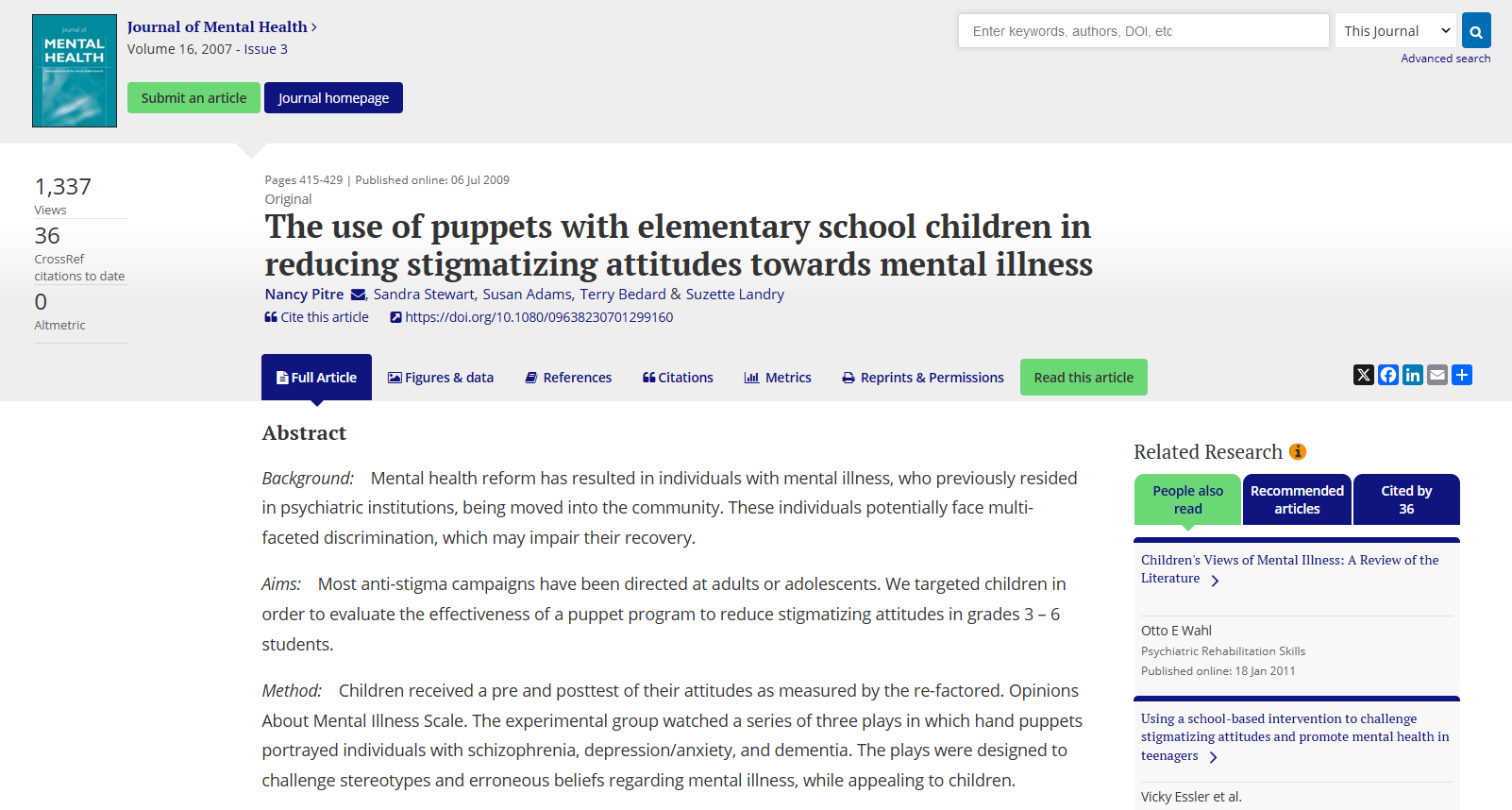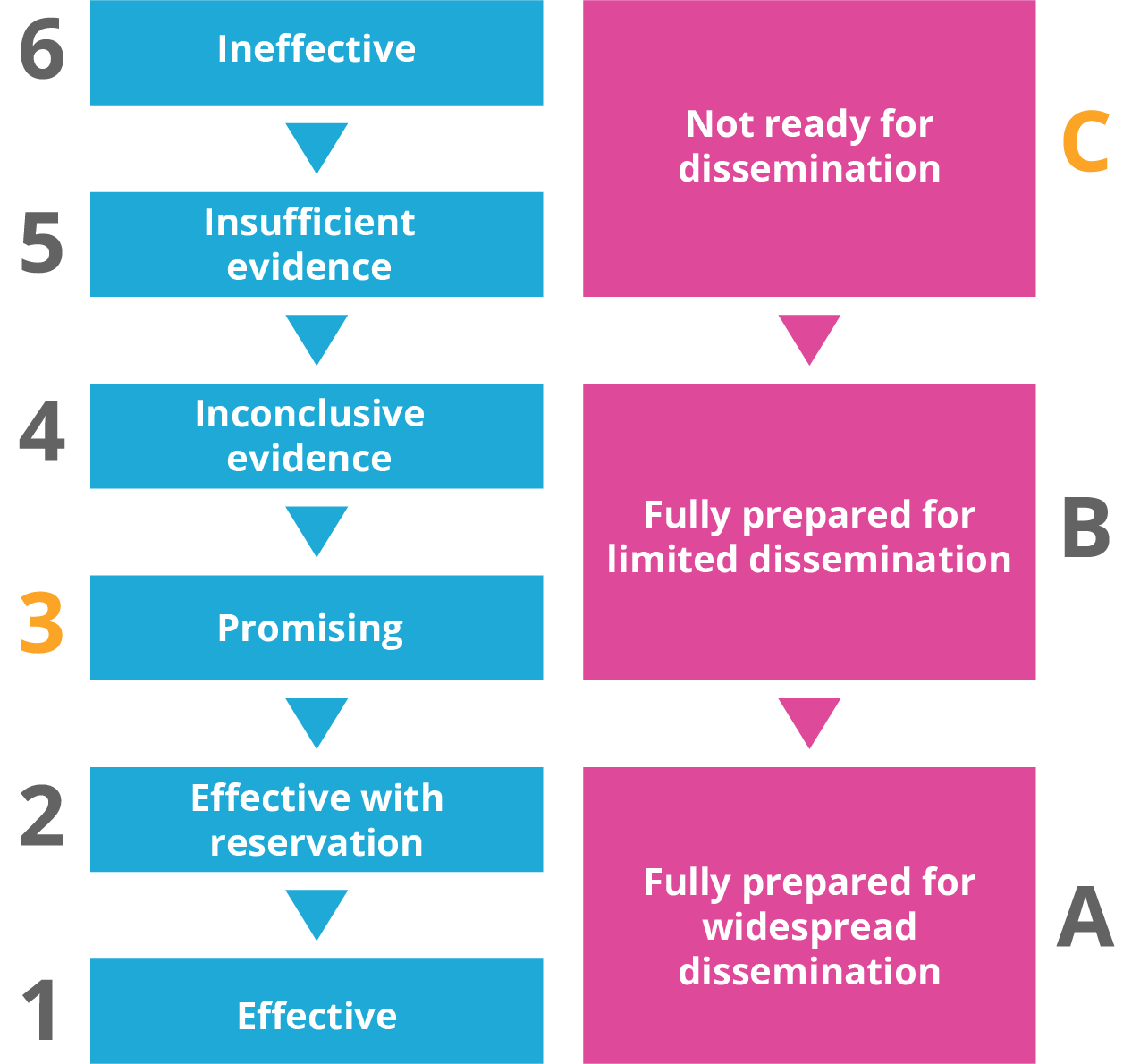Resource: "The use of puppets with elementary school children in reducing stigmatizing attitudes towards mental illness”
DOI: 10.1080/09638230701299160
Developers/Authors: Nancy Pitre, Sandra Stewart, Susan Adams, Terry Bedard & Suzette Landry
Anti Stigma Puppet Show Study
Anti-stigma study of elementary school students
“[...] Most anti-stigma campaigns have been directed at adults or adolescents. We targeted children in order to evaluate the effectiveness of a puppet program to reduce stigmatizing attitudes in grades 3–6 students. [...] The experimental group watched a series of three plays in which hand puppets portrayed individuals with schizophrenia, depression/anxiety, and dementia. The plays were designed to challenge stereotypes and erroneous beliefs regarding mental illness, while appealing to children.”


